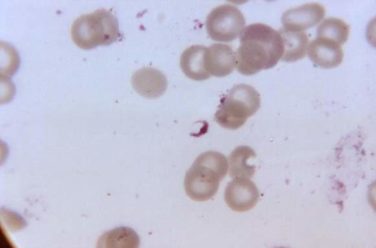FROM SCIENCE TRANSLATIONAL MEDICINE
The selective metabotropic glutamate receptor 5 (mGluR5) antagonist mavoglurant failed to improve behavioral symptoms in patients with fragile X syndrome in two phase IIb, multicenter, randomized, placebo-controlled studies.
A post hoc analysis of a prior phase II trial suggested that mavoglurant improved such symptoms in fragile X syndrome patients with completely methylated FMR1 genes, and the current trials were designed to confirm the findings in 175 adults and 139 adolescents, respectively.
But no change in maladaptive behavior, as measured using the Aberrant Behavior Checklist–Community Edition and fragile X syndrome-specific algorithm ( ABC-Cfx ), was seen 12 weeks after treatment with either 25, 50, or 100 mg of mavoglurant or placebo twice daily for 12 weeks, Dr. Elizabeth Berry-Kravis of Rush University Medical Center, Chicago, and her colleagues reported online Jan. 13 in Science Translational Medicine.
In completely methylated adults, the change in ABC-Cfx score at 12 weeks was similar with placebo and 25 mg mavoglurant (–11.4 and –14.3), and nearly unchanged with 50 and 100 mg of mavoglurant (1.8, -1.8). In adolescents, the corresponding changes were –9.4, –11.8, –3.4, and 8.6 (a statistically significant deterioration vs. placebo). Outcomes were similar in partially methylated adults and adolescents.
Since the primary efficacy endpoint of improvement in behavioral symptoms was not met, the mGluR theory of fragile X syndrome as suggested by animal models – namely that the absence of fragile X mental retardation protein can cause overactivation of mGluR signaling, contributing to the features of the fragile X syndrome phenotype – could not be confirmed, nor could the ability of the methylation state of the FMR1 promoter to predict mavoglurant efficacy, the investigators wrote ( Sci Transl Med. 2016 Jan. 13. doi:10.1126/scitranslmed.aab4109 ).
“One of the most plausible explanations for the negative results is that the mGluR theory on which the studies were based may not be valid or may manifest itself differently in humans, compared to rodents,” they wrote, noting that a combination of targeted treatments may be needed for optimal treatment of fragile X syndrome. Further, preclinical trials suggested that treatment at a younger age and for longer durations might have a greater effect; this approach warrants evaluation in a future trial, they wrote.
This study was supported by Novartis Pharma AG. Dr. Berry-Kravis has served on the Novartis Fragile X Advisory Board and has consulted for Novartis. Other authors also served on the board and have consulted for Novartis and/or Roche, or are employed by Novartis.




